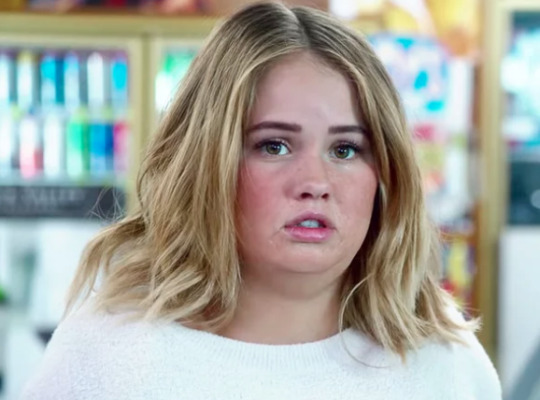Don't wanna be here? Send us removal request.
Text
Your Favorite Movie Can Be Problematic
Maybe your favorite movie is from the 80s, which uses homophobic language, or employs tired racist characters. Or maybe your favorite movie has a known abuser, or someone who is notoriously MAGA. It is difficult to find a movie that has aged gracefully, or doesn’t contain a problematic aspect, small or large. And I think that’s okay.
I recognize the problems that lie nestled within Call Me By Your Name, but it is still my favorite movie. In a time when cancel culture, cutting out toxic people, and a huge political divide is the common thematics of our everyday life, I’m allowing space for problems, a space for difference, a space for imperfections. So as I observe and notate the various problems within the movie, I simultaneously hold close my love for it.
The movie Call Me By Your Name is a queer love story, based on the novel of the same name written by André Aciman, who is Egyptian, Jewish, and unfortunately, heterosexual. Up until I researched the film, I never could have thought that the writer of such a beautiful queer love story could be straight. So while I wished my favorite queer romance was written by someone who identifies as LGBTQ, that is not the case. To continue on the complexities of representation, portrayal and queerness in popular culture, both of our queer characters are acted by cis/het white men. Would the film be better if more queer people were involved in the creation of a piece of media that is so enveloped in queerness? Yes, absolutely. But does it negate the beauty of queer love that is depicted? No, it doesn’t.
Another problem that is easy to observe in the film is the glaring depiction of class. The film takes place in Elio and his family’s summer home, located in the beautiful and lush Italian countryside. The family has a pool, domestic workers...they are served lavish foods and shown in piles of books. Elio’s quick wit, piano skills and literature knowledge reflect privilege in higher education. There is no question that Elio is privileged. But while the film reflects this privilege, it is not overly thrust in the viewer’s face. The house is nice, yes, but it appears old and creaky. Elio seems uninterested in wealth, or clothes, or anything material. Elio finds pleasure in picking peaches off the tree, swimming in the small outdoor pool, writing music on the lawn, and reading old paperbacks.
The film is blindingly white, too. Elio and Oliver are both Jewish, yes. It is evident throughout the film that their Jewish identity is something that does render them marginalized. But they are both European in a way that comes prepackaged with privilege. So, no, the movie doesn’t offer much diversity. It doesn’t even offer much intersectionality within queer identity. There is no concern with race, class, or ability. The movie is nearly apolitical, if the queerness is disregarded. And while I consider myself deeply passionate about activism and politics, this does not affect my ability to enjoy and become enveloped in the film.
So if the film isn’t about, or even pay mention to, white or class privilege, what is it about? It’s about love. And not just love, it’s about first love. And not just first love, but a first queer love. Oliver is older, a grad student visiting to study with Elio’s dad. Elio is 17, with little to no experience in romance, love or sex. And while the movie does a good job of offering perspective into what Oliver is feeling, the film is ultimately shot through the gaze of Elio.
When, inevitably, Elio’s father finds out about his love for Oliver, it is met with sincere support, understanding and gentleness. There is no moment, not even for a second, that the audience thinks that Elio will face consequences for his queerness. So if the film does an inadequate job of representing race or class, it does feel like a relief that we get to observe parents support their son in an unwavering love, regardless of sexuality.
Call Me By Your Name is about falling in love for the first time, and yes, it is about queer love, but it offers none of the fear that is commonly associated with queer love. Elio’s first love with Oliver is simultaneously effervescent, fun, scary, and ultimately, heartbreaking. And these feelings aren’t innately queer, they are universal. So while I identify as queer myself, and yes, while I see plainly the problems another person might assign to the film, I can’t deny the absolute perfect portrayal the film offers of a first romance.
This film shows exactly how it feels to fall in love for the first time. And as a romantic...and as the tears silently leak from my eyes, even after the 14th viewing...my body can’t deny that this is my favorite movie.
#call me by your name#queer love#queer romance#queer theory#queer pop culture#media critique#film critique#feminist#intersectional activism#intersectionalfeminism#elio#oliver#italy#first love
0 notes
Photo
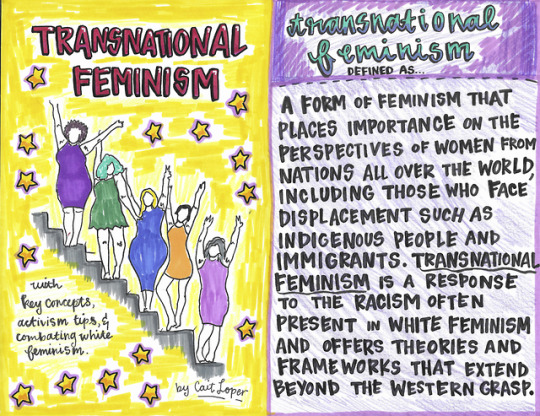
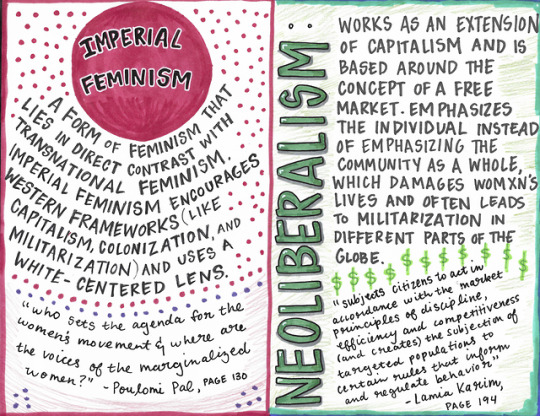
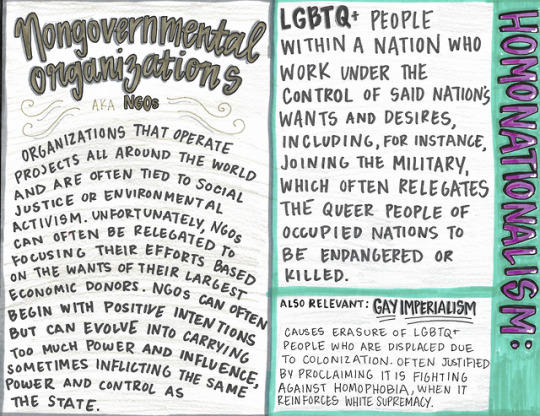
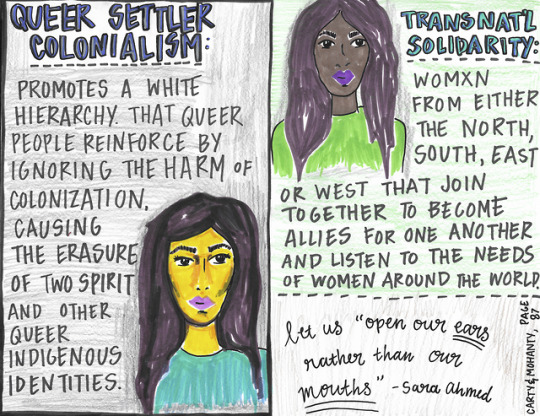
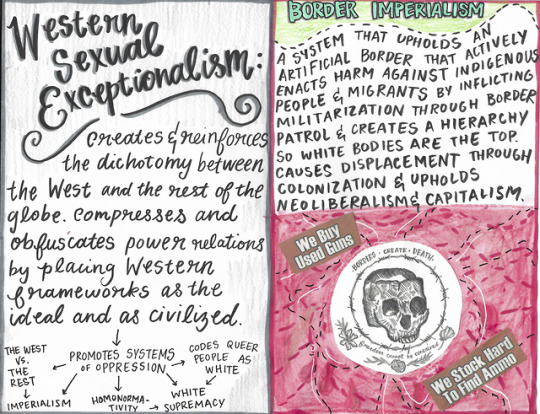
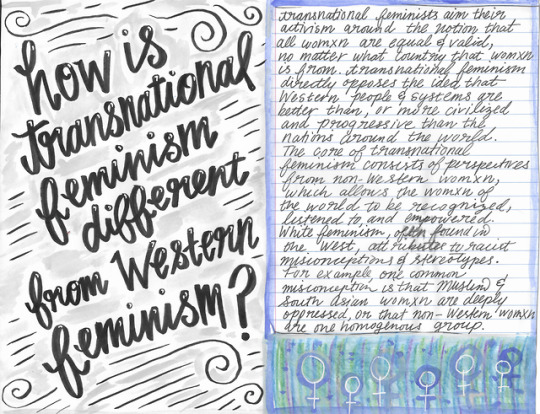
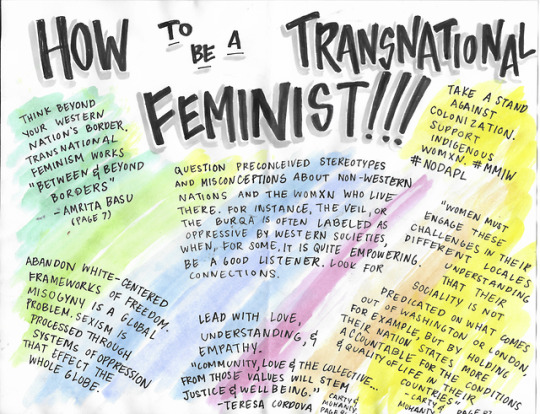
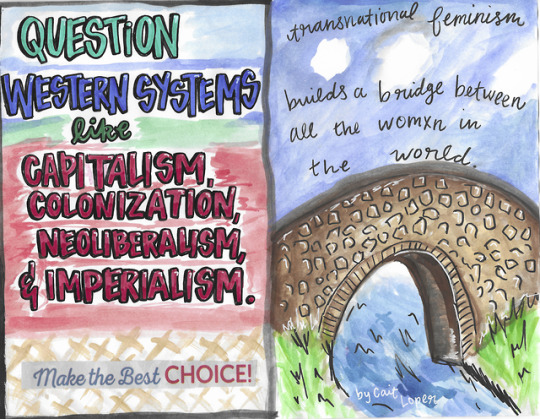
my zine about transnational feminism. I hope you enjoy.
#transnationalfeminism#zine#diy#intersectionalfeminism#capitalism#neoliberalism#colonization#indigenousrights#womxn#globalfeminism#ngos#transnationalsolidarity
0 notes
Text
RuPaul’s Drag Race: a place where all bodies are accepted

#rupaul's drag race#body positvity#drag queens#drag race#yas queen#hunty#roxxxy andrews#thick and juicy
0 notes
Text
Melissa McCarthy: a lesson in sexism and sizeism

0 notes
Text
Why I don’t watch This Is Us

1 note
·
View note
